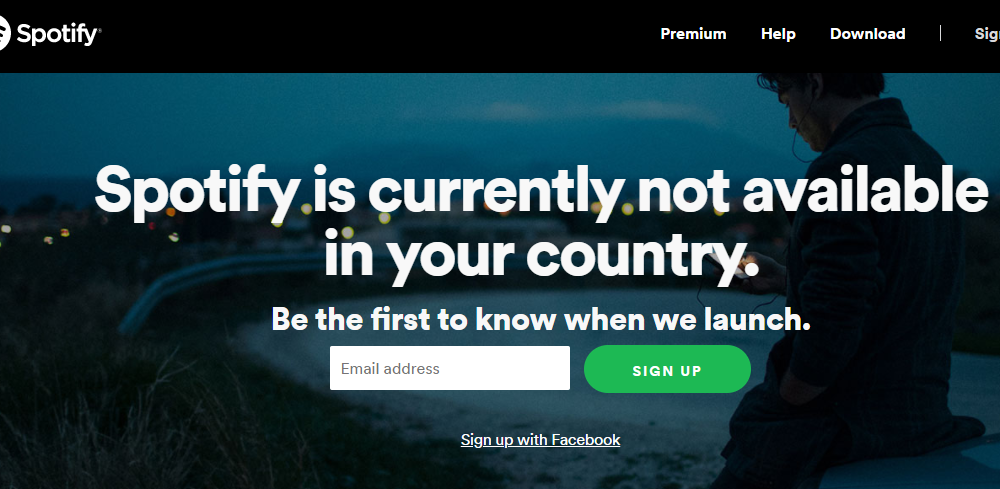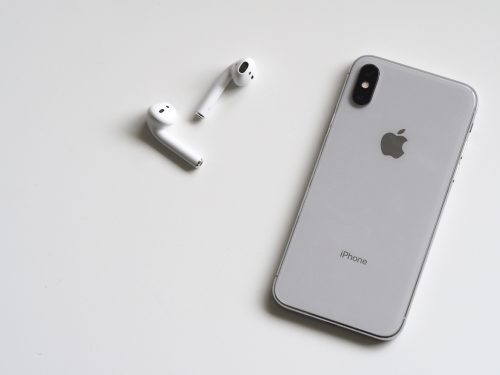Spotify is the most popular music streaming service if we’re not counting YouTube, but it’s not exactly regionally ubiqitous like Apple Music is. Chances are you’ve seen a Spotify link on your Twitter timeline and wondered why the service is not (easily) accessible in Ghana. I’m currently listening to the curated “Daily Mix 3” playlist Spotify makes for me so I can’t relate to your pain, but here’s the thing – Spotify, one of the biggest streaming services simply cannot afford to be in Ghana at the moment.
About a decade ago, Spotify reimagined the way music was consumed and paid for, and essentially invented music streaming. Since then, other services like Deezer, Apple Music, Google Play Music and Tidal popped up. The rest, they say, is history. Music consumption has never been the same. The digital music streaming business now generates more revenue than the digital music selling business. For as little as a $5 monthly fee, you have access to over 30 million songs. $5 couldn’t buy you an album back then. Crazy, I know. But you see, us consumers are the biggest (and arguably the only) beneficiaries of the music streaming revolution. The business has generally been unprofitable to this point, especially for Spotify. The blessing of having 159 million users (71 million paying) isn’t exactly a blessing.
Spotify charges $9.99 per individual and $14.99 for the family package, which allows up to 6 members. Spotify also charges less than $9.99 in some countries and across some demographics. South Africa for example gets to use the service for $5 monthly. Those lucky Satafricans. Meaning Spotify isn’t exactly making $9.99 from each of the 71 million paying users. Today, Spotify makes an average of $6.39 per paying user, down from $8.61 in 2016 despite a rapidly growing user base. And oh, this is revenue, not profit. Out of this amount, a huge chunk goes into paying royalties and music licensing fees to publishers, artistes and record labels. Each time you stream a song, these guys have to get paid. In a decade, the Swedish company has paid $9.8 billion in royalties, and many artists are demanding for more. At the end of the day, they’re left with cents to spend on operational costs, marketing, research and development, and other investments. Revenue increases annually, but so does the net loss albeit not as quickly as any company would wish. The increasing revenue offers promise but that’s just about it for now.
Now we have an idea of what’s currently on Spotify’s plate to help flesh out answer to the main question, about how Spotify can’t afford to be in Ghana. After seeing all the numbers up there, do you think it’s worth the investment? First of all, there’s the hurdle of being competitive in its offerings. Apple Music and Deezer both charge $5 per month in Ghana, and Apple Music’s family subscription is even cheaper than Spotify’s standard individual subscription. Yes the service launched in South Africa some days ago for that price because, well, South Africa offers a bigger market for pretty much anything. SA is a safer bet. I’m tipping the streaming service to rollout in Nigeria and Kenya next, before thinking about Ghana. The difference between Spotify and Apple is the former is a private company and the latter is one of the world’s most profitable tech companies with relatively diverse sources of revenue. Apple can afford to invest and lose in the short to medium term. Spotify can’t afford to make too many mistakes.
Aside the price offerings, there’s content. For example, Apple Music sinks resources into curating localized content for Ghana; delivering African playlists, highlights and artist promotions. That’s asking for a lot from Spotify in a country with unproven potential.
There’s no doubt Spotify will make its way here eventually. Hopefully soon after the Swedish streaming company figures most of the business kinks out, which it’s confident it will, through promoting more original Spotify content and podcasts (they lose less money from these). Also, Spotify going public in April could accelerate the realization of hope. For one, going public means more money in the bank. Fingers crossed that the dynamics of the stock market pressurizes them to expand rapidly. For now, we have to settle for the alternatives. Yup, settle. Someone had to say it.





Great informative article. They however have a huge chunk of revenue from Ads.
I was wondering as i do not reside in Ghana. How does a customer pay for the Apple Music service in Ghana?
this article is probably over a year, it’s now January 2019 and i can comfortably stream music on Spotify without using a VPN or anything to hide my location. I’m on vacation in Ghana
That means I can’t use it in Ghana very sad
Yes i can understand Spotify, i mean it’s a relatively small company juxtapositioned to Apple music in terms of resources, streaming revenue amongst the other sources of revenue that apple it self generate which its obvious to us, but darn minus the years before this was published it’s now been 3 years and still no word from Spotify, hey who’s keeping count.
Bruh!!! Just let me play spotify in Ghana we love music cuz its our thang.
Try us and see.